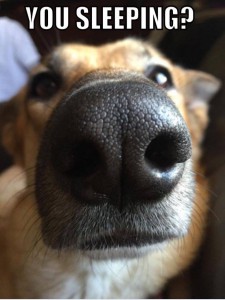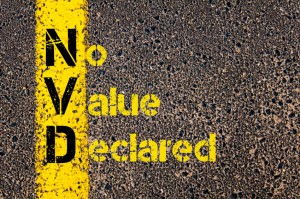 Losing a dog is always difficult for the owner, but it can be equally hard on the household’s canine companions. According to Dr. Sophia Yin, a San Francisco-based veterinarian and applied animal behaviorist, grief is one of the basic emotions dogs experience, just like people. And just like people, dogs will react differently to the loss of their loved ones. In some cases, dogs recover quickly and do not grieve at all. It all depends on the animal’s individuality. The loss of another dog means the loss of a constant companion of whom the dog was accustomed to daily. As a result, there is a drastic change in the dog’s routine causing him/her to feel disoriented and distressed.
Losing a dog is always difficult for the owner, but it can be equally hard on the household’s canine companions. According to Dr. Sophia Yin, a San Francisco-based veterinarian and applied animal behaviorist, grief is one of the basic emotions dogs experience, just like people. And just like people, dogs will react differently to the loss of their loved ones. In some cases, dogs recover quickly and do not grieve at all. It all depends on the animal’s individuality. The loss of another dog means the loss of a constant companion of whom the dog was accustomed to daily. As a result, there is a drastic change in the dog’s routine causing him/her to feel disoriented and distressed.
Losing a Dog Friend
Indie and Katie were quite an unusual couple, but they were as close as ever. They spent each day together and were fond of each other. On many occasions, Katie would sleep on Indy’s back at night, her four-pound body rising and falling with his snores. Unfortunately, at age 14, Indy’s health deteriorated and had to be put to sleep (euthanasia). The usually sweet Katie was devastated opting to isolate, refusing to eat, acting nasty and urinating all over the house. It was all too clear that this attention-seeking behavior was a way to express her grief.
Another heartbreaking story is told of Bella the Dog, who refused to leave the side of his companion Beavis the Beaver even after her furry friend had passed away. He lay there sad and confused hoping his friend would wake up.
Signs of Grief

A study from the ASPCA found that two-thirds of dogs show recognizable signs of grieving, such as a decrease in appetite, less barking, clinginess, and lethargy. Others will sleep longer than usual or show a lack of interest in taking walks, playing or participating in their favorite activities. Apart from the decrease in social interaction, some dogs may pace around tirelessly looking for their loved ones.
For those with a couple of the furry friends in their households, it is common to see some pecking order established among them signifying the structure of the park hierarchy. When one of the dogs dies, let’s say the dominant one, the remaining pets role is ill-defined and may act confused for a while before adjusting to the change.
According to The American Society for the Prevention of Cruelty to Animals, 36 percent of dogs ate less than usual after the death of another canine companion. About 11 percent stopped eating altogether. About 63 percent of the grieving dogs vocalized more than normal or became quieter. Study respondents indicated that surviving dogs changed the quantity and location of sleep, with most preferring to sleep at their lost companion’s spots. More than half the surviving pets became more affectionate and clingy with their caregivers as a way of demanding attention. Overall, the study revealed that 66 percent of dogs exhibited four or more behavioral changes after losing a pet companion.
Loss of a Human Companion
Dogs grieve over their fallen masters as well, and their plenty of stories to support this view. Pictures of dogs grieving their human companions have gone viral on several occasions with some sitting on their master’s graveside, perhaps waiting for his return. A photograph of a brown Labrador retriever named Hawkeye lying beside the American flag-draped casket of his human companion, Navy SEAL Jon Tumilson, went viral on the internet. Tumilson was one of the American soldiers killed by a rocket-propelled grenade on August 6th, 2011. When one of Tumilson’s friend went ahead to address the mourners, Hawkeye followed him and lay down in front of the casket for the rest of the service. The moving picture showed that the heartbroken dog represented a possibility that there’s more to our pets’ psychology than has ever been recognized.
A similar story is told of a dog named Hachikō, remembered for his remarkable loyalty to his owner which continued for many years after his owner’s death. Hachikō’s master, Professor Ueno suffered a brain hemorrhage and died on his way home. However, Hachikō waited for his owner, each day at the usual time at Shibuya Station in Tokyo, Japan seemingly awaiting his return for almost ten years. It was evident that the dog was finding it difficult to cope with the absence of his master. The Japanese people recognized the dog’s remarkable act of loyalty and he became a national sensation. Though some may argue that Hachikō’s behavior was a mere ritual, others might recognize it as grief. Many of us have witnessed animals’ grief when they lose their loved ones, and their behavior speaks louder on their untold suffering and loneliness.

 What goes on in a dog’s head when a loved one dies can be compared to what happens in the mind of a very young child of between two to five years. Children do not comprehend that the life functions of their loved ones have hit an inevitable end, and this is reflected in the questions they ask as they try to understand the situation. Children will ask questions like, ‘ Will daddy come for my birthday?’, ‘Should we put grandma’s favorite cookie in the coffin in case she is hungry?’ Just like children do not have the concept of the permanence of death, dogs also stay hopeful that their loved ones will return as evidenced by Hachikō.
What goes on in a dog’s head when a loved one dies can be compared to what happens in the mind of a very young child of between two to five years. Children do not comprehend that the life functions of their loved ones have hit an inevitable end, and this is reflected in the questions they ask as they try to understand the situation. Children will ask questions like, ‘ Will daddy come for my birthday?’, ‘Should we put grandma’s favorite cookie in the coffin in case she is hungry?’ Just like children do not have the concept of the permanence of death, dogs also stay hopeful that their loved ones will return as evidenced by Hachikō.
When one dog in a multi-dog household is gravely ill, it may help for the healthier dogs to be present during euthanasia, or at least for the animal to see the deceased dog’s body, says Dr. Pachel. This way, the dog can have closure rather than being left searching for its companion long after it’s gone. Like in Hawkeye’s case, having an opportunity to lie near the casket of his deceased owner, if it’s a possible scenario, may help the dog to understand the process better.
How to Deal with the Loss
Sorrow and grief are natural responses to death and owners should not feel like they need to shield themselves or their children from the sadness of losing a pet by either not talking about the pet’s death, or by not being honest about what happened. The stress of losing a beloved pet can be emotionally draining thus the need to look after your emotional and physical needs. Talk about it whenever you can and give yourself time to grieve in your own way. Other ways to help you cope with the loss of a pet in a healthy way include;
Reaching out to others who have lost pets
Find someone who lost a beloved pet as they are in a position of relating and understanding what you are going through. It can be done by checking out online message boards, pet loss hotlines, and pet loss support groups. Such forums can give you helpful advice that will facilitate your healing process.
Seeking professional help when necessary
The American Psychological Association assures us of human resilience, recommending the help of mental health professionals if needed, to help deal with grief. If your grief becomes constant and gets in the way of normal functioning, you might consider getting the help of a professional.
Maintaining the routine for the remaining pets
Stick to your pet’s usual routine by keeping regular meal schedules, walk times, play times etc. Don’t rush into adopting another animal for your surviving animal companions’ sake. They need time to grieve, too, and introducing a new family member too soon may cause more stress. If you eventually choose to get another pet, try to pick one that will fit in with your remaining pet, when the time is right. If you feel your dog needs other canine companions, but aren’t ready for another pet yet, try the dog park, a doggy play date with a friend that has dogs or book a training class for your pet.
Time heals
Just like with human grief, it all gets better with time. Each animal mourns for a different period, and so do humans. Some get over it sooner while others take a while to bounce back. Be patient with your dog as most dogs will come out of their grieving process and form new attachments within a few weeks or months. It’s important to monitor your pet closely paying attention to other forms of illnesses that may not be necessarily grief.
Caring for your pet and helping him through his grief is a rewarding experience that can also assist you and other family members with the healing process. Engage your pets in activities like a walk in the park, a ride in the car, a soothing brush or a game of fetch. This will help strengthen the bond and allow for an easier transition process.






